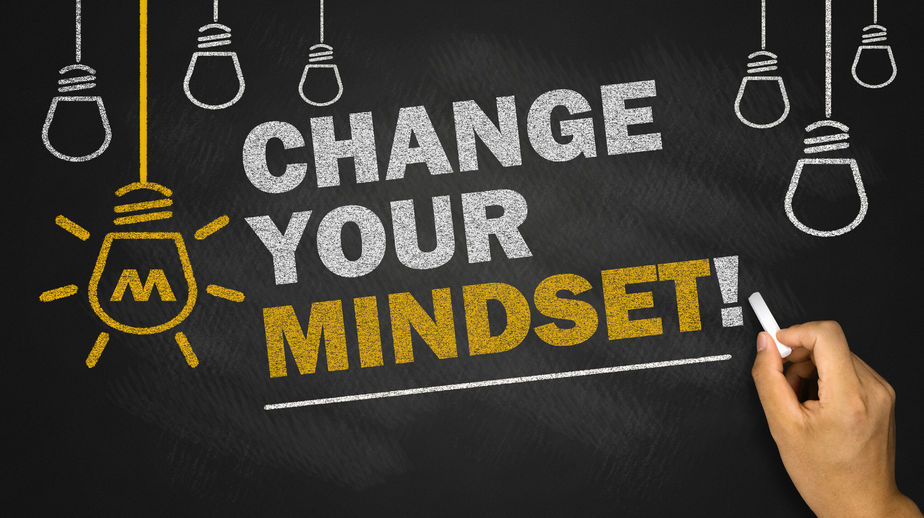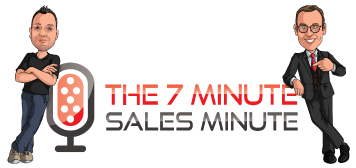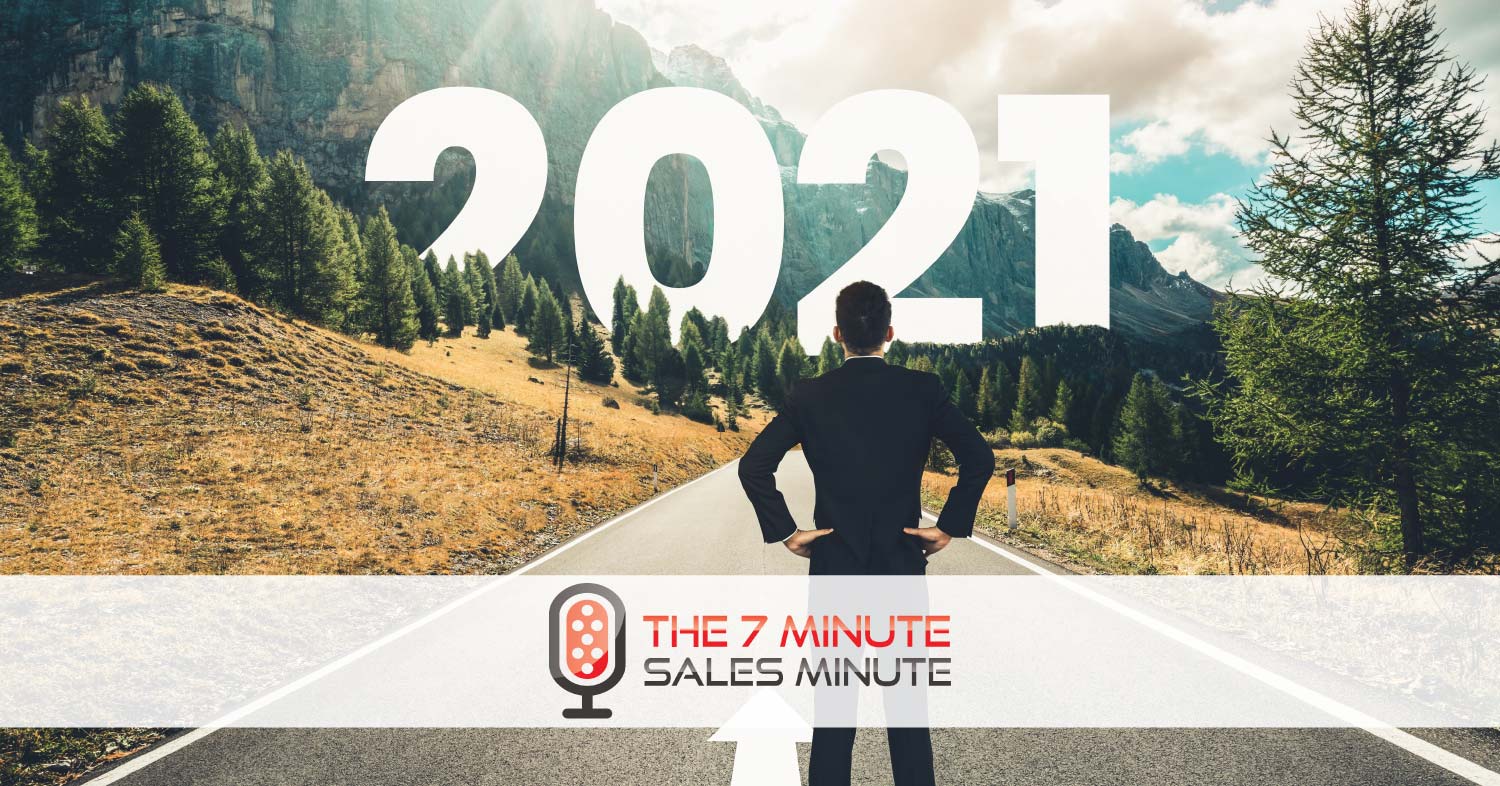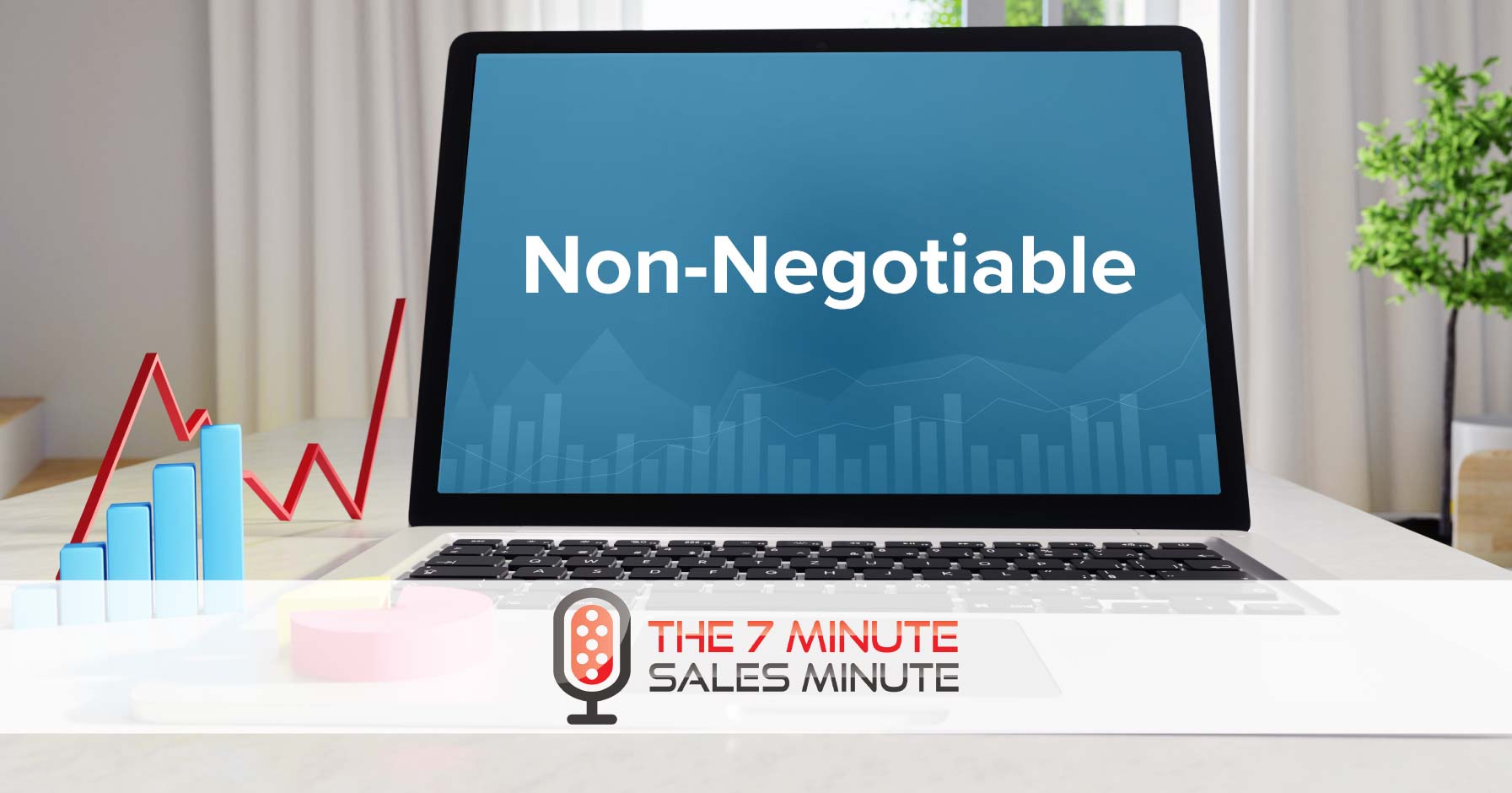
On today’s episode, Jon and Scott challenge your mindset. Are you focused on solutions, or are you part of the problem.
Sit back and enjoy!!
Please take the time to visit out sponsor Audible.com for a free Audiobook and a free trial 30 day membership.
Read the transcript
Scott Fishman: Thank you for joining us for another episode of The Seven Minute Sales Minute podcast, your bite-sized and easy-to-digest guide to jump-starting your sales career and putting you on the road to gaining more prospects, more clients, more business and, ultimately, more income. Hey, Jon, how you doing?
Jon Dwoskin: I’m doing well, Scott. How are you?
Scott Fishman: Terrific.
Jon Dwoskin: All right, welcome back, everybody, and thank you for listening. Today we are going to talk about mindsets and being solution-oriented. As salespeople, having the right mindset every day to attack the day in what sometimes can feel like the same old, same old, is so important, and we’re going to give you some tips and techniques and some business practices, best business practices, to attack that. We’re also going to talk about being solution-oriented in just your mindset, every single day. So, when clients are coming at you and you got to come up with some solutions, we’re going to dig deeper into that. So, let’s start with the mindset. Scott, what do you think about that? As a salesperson, what type of mindset do they need to have on all levels of the continuum?
Scott Fishman: Well, I think a positive mindset is one …
Jon Dwoskin: I would agree.
Scott Fishman: … and just knowing how good you are. I think the big thing that we fall into a lot of times with mindset is, “Oh, this person’s never going to say yes. I’m not going to write this deal. I’m not going to get this sale,” and you come up with all the reasons why they’re not going to do it instead of all the reasons why they’re going to do it, so a lot of times, your mindset has to be flipped on its ear and taken upside-down, so to speak.
Jon Dwoskin: Right. I would agree. You have to know how good you are, but also, as salespeople, we have to know that we can’t stop learning, because there’s so much we still don’t know, so many new ways to say the same thing, different angles, different perspectives. Never – we talked about this a lot in our podcast – never stop learning as a salesperson.
Scott Fishman: Right. You should always be listening to what others around you are doing. Learn from people’s successes, learn from people’s failure. You should be reading, you should be listening to audiobooks. We’re sponsored by Audible.com, by the way, you should also be listening to other podcasts. That you should never stop learning.
Jon Dwoskin: Right. There’s a … I’m just talking about podcasts. I’ll name a few that are some of my favorite. Ryan Lee, the Freedym Fest, which he only has about 90-some episodes, and then he stopped the podcast, but it’s a phenomenal podcast where you can learn a ton. Chalene, what’s her podcast called?
Scott Fishman: The Chalene Show and Build Your Tribe, she’s actually got two podcasts.
Jon Dwoskin: Yeah. She’s unbelievable, I mean, and there’s a lot of different types of stuff these two talk about, but you can pull a lot of really good sales information from them.
Scott Fishman: Correct.
Jon Dwoskin: Let’s talk about listening as a mindset. I mean, so many times, and we’ve talked about this, salespeople want to talk, but what are some easy, let’s give some, a couple tips of how to just be a better listener.
Scott Fishman: Well, I think one big thing is being an active listener, showing the person that you’re talking to that you are actually listening. Asking them relevant questions, letting them know that you are actually paying attention, and that’s something that, in listening, we tend to kind of trail off. Nowadays, we’ve got many computers in our hands at all times, so you can tell when you’re talking to someone, especially when you’re having a phone conversation with them and they are not listening. My wife is really good at knowing when I’m doing that, for sure, so rest assured our clients know when we’re doing that stuff to them as well.
Jon Dwoskin: Right. You want to do yourself a favor. Put your phone down. Turn your phone off. Leave it in a drawer for 10 to 60 minutes a day, so you can really focus.
Scott Fishman: Right. One thing I like to do, because you can’t really call a client out for doing that.
Jon Dwoskin: No.
Scott Fishman: You can’t, or a customer, but one thing I always like to do is, I’ll just close. If I know that they’re not paying attention, I’ll say, “Okay, why don’t we go ahead and get this wrapped up,” and, “Which card did you want to use for your deposit,” and then they start paying attention right away again.
Jon Dwoskin: Right.
Scott Fishman: It’s funny how that works.
Jon Dwoskin: That’s good. You know, we talk about, as far as mindset, confidence, I think that’s one thing that salespeople have a lot of, and it’s something that they don’t have a lot of, is really having the confidence to call a prospect 15 to 30 times before they’ll call you back and not feeling self-conscious that maybe they don’t want to talk to you. The confidence of calling somebody that you think you’re not ready to talk to because you think you’re going to make a fool of yourself. Just put it all out there, and have the mindset that the people that you’re calling need to know you, because they’re going to make money or be … Their life’s going to be better in whatever element that you can provide to them because you reached out to them and connected to them. So, really just, whatever percentage your confidence is at, raise it 1% every day.
Scott Fishman: Right, and thicken your skin. Your mindset should be one of that that you’re going to hear “no.” It’s not very often that we just get that lay-it-down deal, as they say, where it’s just, “Yes, yes, yes.”
Jon Dwoskin: Right.
Scott Fishman: They’re going to say, “No.” You should go into every sales presentation expecting to hear “No,” expecting to hear objections, because that’s our job.
Jon Dwoskin: Right. That moves us right to a solution-oriented mindset, right, so when you hear, “No,” right, how, then, do you … Let’s talk about, how are you then going and communicating with the client to talk about a solution that they’ll say, “Yes” to, right, so when somebody says “No,” and we talked about this a lot Scott, it’s just, “Alright, so what?” Now you got to figure out how to get them to a “Yes.”
Scott Fishman: Right.
Jon Dwoskin: What’s, thinking fast on your feet, how do you turn it around? What’s the formula? What’s the solution?
Scott Fishman: I get it, and I think one of the big things that I like to do in that situation, as soon as I hear, “No,” I like to turn into a 2-year-old and just ask, “Why?”
Jon Dwoskin: Right.
Scott Fishman: You’ll hear it, and if you … You don’t need to be so blunt about it, but sometimes you do, and it’s fun, but if you just ask someone why they’re not moving forward with you, they’re usually going to tell you, and then you ask them “Why?” one more time, because the first reason they give you is usually full of bullshit …
Jon Dwoskin: Right.
Scott Fishman: … and the second one is usually the real objection, so we get to the meat of it by asking twice.
Jon Dwoskin: Right, and then after you ask “Why,” when you feel like you can’t say that anymore, a really good one that I learned from a book I read 20 years ago is, “How do you mean?”
Scott Fishman: There you go.
Jon Dwoskin: Right, so then you just keep on asking, “Well, I don’t want to use … ” I mean, just a quick roleplay. “I don’t want to use your product.”
Scott Fishman: Why is that, Jon?
Jon Dwoskin: Well, how do you mean? Well, I don’t want to use it.
Scott Fishman: Well, how do you mean?
Jon Dwoskin: I don’t want to use it. Well, why not? I mean, they’re really, they get people talking, they really get people talking.
Scott Fishman: Exactly, and then, when you do find out what their true objection is, responding relevantly lets them know that you were listening, and you can show them the benefit of your product that helps them overcome, the feature that leads to the benefit that helps you overcome that problem.
Jon Dwoskin: Right, and the reason we combine mindset and solution is because you want to be in the mindset that you are the solution to the client, that you’re going to come up with the solution for the client, and you’re going to figure it out, and they then rely on you to be the solution person; so, the person that has the idea, and can also give the solution, and guide somebody to a solution, guide a client to a solution, that is priceless to the people you’re selling to.
Scott Fishman: Yes. Did you ever see the movie Pulp Fiction?
Jon Dwoskin: Yes.
Scott Fishman: Harvey Keitel, Winston Wolfe, he drove a badass car in that movie, because he did what? He solved problems.
Jon Dwoskin: Right.
Scott Fishman: He came with the solution, so that’s what we need to be, more Winston Wolfe in our lives.
Jon Dwoskin: Absolutely, absolutely. In closing, solve your client’s problems, and you solve your own. Have the confidence to do it, to stretch yourself, have the right mindset that you are helping people grow and have a better life, and grow their business, and it’s because of you.
Scott Fishman: Thank you for listening, everybody.
Jon Dwoskin: Take care. Have a great day.
Announcement: Thank you for listening to this episode of The Seven Minute Sales Minute. For show notes and worksheets pertaining to this week’s show, check us out at thesevenminutesalesminute.com. Take today’s strategies and run with them. Increase your sales, and increase your income.




